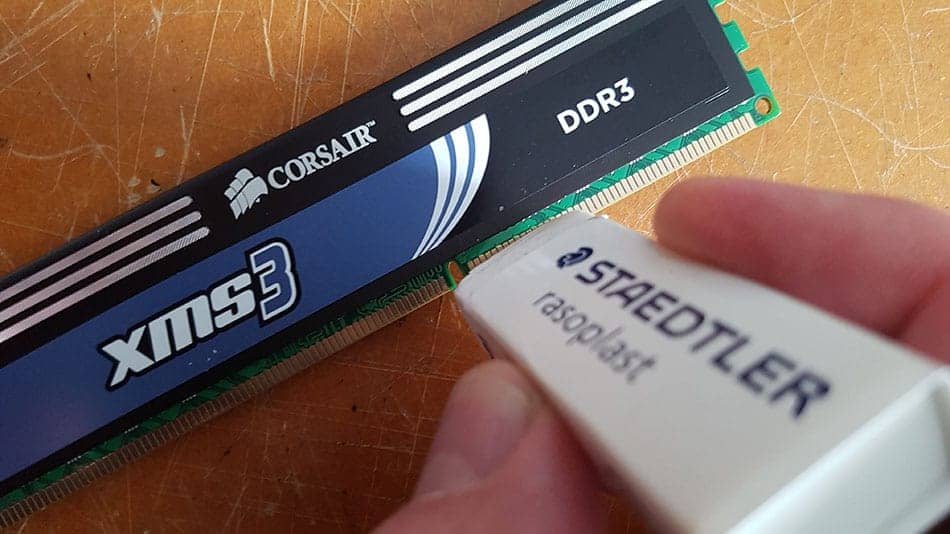Keeping your computer's RAM clean is crucial for maintaining system stability and reliability. In this guide, I'll share a trusted method I've used for over two decades on how to clean RAM contacts effectively. This method also applies to all types of memory modules, add-in cards, and anything else with an edge connector.
Essential Tools for Cleaning RAM
Before you begin, gather the following tools to ensure a safe and effective cleaning process:
-
Phillips screwdriver
-
High-quality pencil eraser (such as Faber-Castell)
-
Lint-free cloth
-
Compressed air or an air compressor
-
Ground wrist strap (optional, but recommended for avoiding static damage)
Step-by-Step Guide On How to Clean RAM Contacts
Step 1: Prepare Your Workspace
-
Power Down and Unplug : Ensure your computer is unplugged and all cables are disconnected.
-
Reduce Static Charge : Touch the metal case of your computer to discharge any static electricity from your body.
-
Open the Case : Remove the lid of the case. If your computer is dusty, clean the inside first to avoid contamination during the RAM cleaning process.
Step 2: Remove and Clean the RAM Modules
-
Remove the RAM : Carefully release the clips at the ends of the RAM slots and gently pull out the RAM modules. If a clip doesn't move, be extra cautious as it is designed to be fixed.
-
Clean with Eraser : Place the RAM on a clean, flat surface. Gently rub the contacts with the pencil eraser in short strokes until they appear clean. Flip the RAM and repeat on the other side.

Step 3: Remove Eraser Residue
-
Wipe the Contacts : Using the lint-free cloth, wipe the RAM contacts thoroughly to remove any eraser filings.
-
Use Compressed Air : Blow off any remaining debris with compressed air. Tap the RAM module gently on a flat surface to dislodge hidden filings before the final air blow.
Step 4: Clean the RAM Slots
- Air Blow the Slots : Use compressed air to clean out the RAM slots thoroughly. Ensure all dust and debris are removed, checking closely with a good light source.
Step 5: Reinstall the RAM
-
Check and Align : Ensure the RAM slots and modules are clean and free of debris. Align the RAM module with the slot, taking note of the notch position.
-
Insert the RAM : Carefully press the RAM into the slot until the clips click into place, securing the module.
Common Mistakes to Avoid
-
Avoid Touching Contacts : Never touch the RAM contacts with your fingers, as oils and static from your skin can damage them.
-
No Solvents : Do not use solvents or sprays on RAM contacts, as these can corrode or damage delicate metals.
-
Thorough Cleaning : Make sure to remove all eraser residue; leftover particles can cause connectivity issues.
